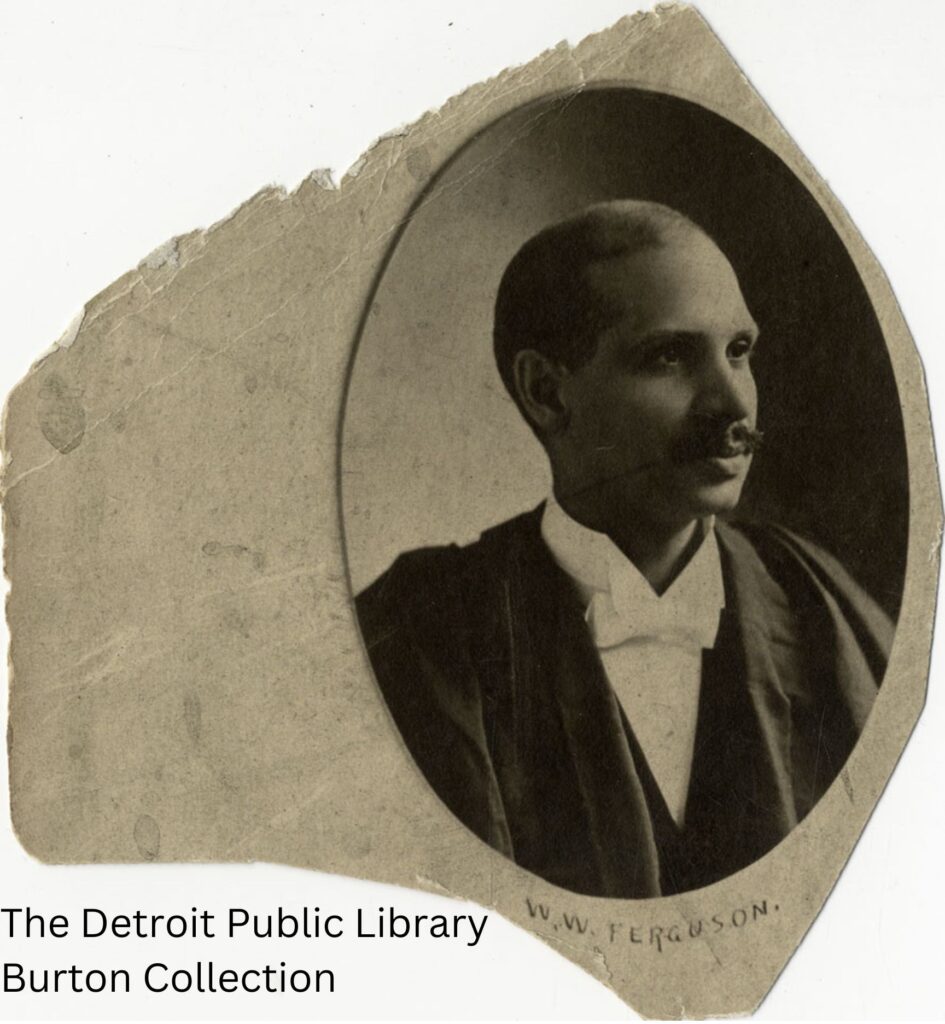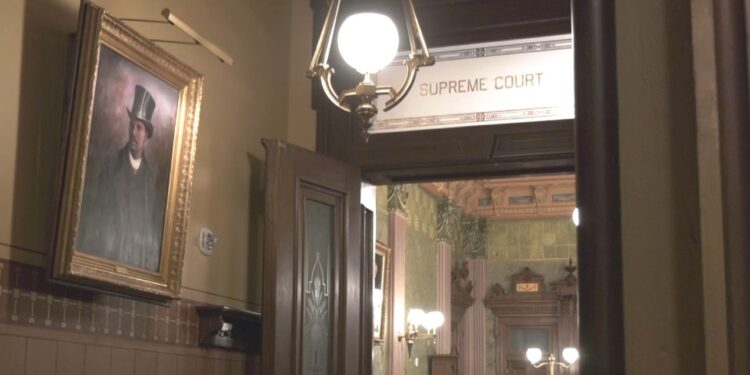Lansing, Mich. (WZMQ) – Martin Luther King Jr.’s life and legacy were made possible by so many individuals who came before him. William Webb Ferguson was a printer and an insurance agent born in 1857 and raised in a more privileged family and area of Detroit.

“We like very neat stories that can be broken up into short talking points. So we had a civil rights movement, Martin Luther King, exciting, done. we don’t think about everything that had to come first and everything that has to happen subsequently.”
Valerie Marvin, Michigan Capitol Historian
Before he was elected as Michigan’s first Black legislator at the age of 35, he played a role in a court case that set a precedent for future civil rights lawsuits.
Valerie Marvin is a Capitol Historian and Curator at the Michigan State Capitol. Marvin explained that the lawsuit was filed in 1889, at a time in the post-Civil War era when Civil Rights legislation was starting to unravel. Multiple Supreme Court rulings striking down federal protections pushed Michigan to pass its own anti-discrimination law in 1885, setting grounds for Ferguson’s case in ‘89.
In 1889, Ferguson was set to attend a dinner with a friend.
“They were refused service in the restaurant portion of the establishment. When he questioned the owner and said that’s not the law in the state of Michigan, the owner said ‘I don’t care, it’s my restaurant.’” Marvin explained. “This helped put Ferguson in a position where, two years later, he was a civil rights icon who could run for and be elected to the house.”
Ferguson v. Gies was a case heard by the Michigan Supreme Court in 1890, the court ruled unanimously in favor of Ferguson, a ruling that played a major part in pushing him to run for public office.
Marvin said that once he was elected to the House, he was very aware of the unique nature of his position. on top of being appointed to printing and insurance committees, Ferguson was also part of a U.P. delegation that traveled across the peninsula, visiting institutions to hear the issues communities faced in the late 1800s. Mavin said this gave Ferguson the unique opportunity to serve as an ambassador for Michigan’s Black community to the U.P..
The role William Webb Ferguson played in connecting the Black communities within Michigan and fighting against discrimination following the Civil War propelled forward the civil rights movement that would come 40 years after his death.
During the 1960s movement, lawyers went back to look at state civil rights cases. Marvin said there was discussion about the case in Michigan which held up as a positive ruling that helped serve as a precedent.
The lives of MLK and William Webb Ferguson never overlapped. Ferguson fought for the rights of Black Americans post-Civil War, while the country was still divided in moving forward from its past of segregation, discrimination, and mistreatment of African Americans. Martin Luther King Jr. stands on the shoulders of men like Ferguson, who set a standard, and a president, blazing trails for the leaders of the civil rights movement.










